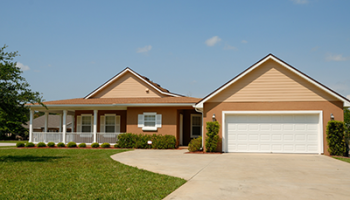Step-By-Step Guide to Being a First Time Home Buyer
Step-By-Step Guide to Saving Money As a First Time State College Home Buyer
Buying a home in Williamsport can be a significant milestone in your life, but it's important to approach the process with financial prudence. As a first-time home buyer, understanding how to save money throughout the process is crucial.
From navigating down payments and credit scores to exploring mortgage options and negotiating with sellers, we'll equip you with the knowledge to help you make informed decisions. Here are ten valuable insights and practical tips on maximizing your savings.
Down Payment
One effective way to save for your house down payment is to set up a dedicated savings account and diligently save a portion of your income towards the goal. Additionally, you can check out down payment assistance programs. These programs, offered by government agencies and nonprofit organizations, provide financial assistance to help home buyers reduce their financial strain.
Credit Score
Shane Whitteker is the owner and chief broker at Williamsport mortgage broker, Principle Home Mortgage. He says it all comes down to saving money.
“A higher credit score will save you money in interest rate and potentially closing costs as well,” Whitteker says. “To illustrate this point, if you have a mortgage for $200,000, the cost difference of .5% over a 30 year period is $23,929.92. It seems like a small amount monthly but adds up over time.”
A higher credit score will help you secure loans with low-interest rates. Acquiring loans at low-interest rates will lead to significant long-term savings over the life of your loan. You can boost your creditworthiness and qualify for a mortgage with better terms by paying bills on time, reducing credit card balances, and avoiding new debt.
Home Insurance
To lower your home insurance costs, you can take steps such as bundling your insurance policies and installing safety features like smoke alarms or security systems. Shopping around for insurance providers and comparing quotes can also help you find competitive rates that fit your budget while ensuring your home is adequately insured.
Closing Costs
What can you do to try to lower your closing costs? According to Whitteker you have a few options.
“You can negotiate with the seller, or you can get a gift from a family member,” Whitteker says. “If you negotiate for the seller to pay the closing costs this will be limited to a percentage of the purchase price depending on the mortgage program you are using. Make sure to discuss this with your mortgage broker in PA before making this part of the negotiation and contract.”
While closing costs are typically the buyer's responsibility, there are strategies to help pay for them. Negotiating with the seller to cover a portion of the closing costs or requesting lender credits can reduce the financial burden. Collaborating closely with your real estate agent and mortgage lender will help you explore these possibilities and save money during closing.
Mortgage Types
If you are on a tight budget, there are certain mortgage types that you can explore to ease your financial burden. Government-backed loans like FHA or USDA loans offer lower down payment requirements and more flexible qualification criteria, making them suitable options for buyers on a budget. Researching and understanding different mortgage types will empower you to choose the most affordable and suitable option for your financial situation.
Extra Payments
Making extra payments can save you money by reducing the principal balance of your mortgage faster. By paying more than the minimum required amount each month, you decrease the total interest paid over the life of the loan. As a result of these extra payments, you will build equity fast and shorten the repayment period, resulting in significant long-term savings.
Negotiate
As a home buyer, you can negotiate costs with sellers by conducting thorough market research to understand the property's value. Submit competitive offers to the seller and request concessions or repairs within the property. Good communication, working with a skilled real estate agent, and being willing to compromise can lead to successful negotiations and potential savings.
Whitteker says the ability to successfully negotiate hinges on the housing market at the time the negotiation.
“This really depends on the market; If we are in a seller’s market it is difficult to negotiate closing costs to be paid by the seller,” Whitteker says. “When the market is more balanced this is much easier.”
It’s all about the seller’s expectations.
“What it comes down to is the seller has a bottom line they will accept. Through negotiation you can figure out where this bottom line is,” Whitteker says. “So when you make your offer you have to consider the amount you are asking for from the seller. For example. If the home is listed for $250,000 and you plan to ask for $8,000 in seller assistance towards closing costs, you will need to make your offer realizing the seller will net $8,000 less because of their contribution to your closing costs. If the seller is set on $245,000 as the lowest they will go as far as a flat out purchase price, you will need to offer the seller $253,000 with seller assistance of $8,000. This way the seller gets the $245,000 they are looking for and you get help with your closing costs.”
Location
The location of a home impacts the charges you will incur as a home buyer. Property taxes, insurance rates, and commuting expenses like HOA fees vary based on location. Higher-demand areas attract higher prices, while remote or rural areas offer more affordable options. Considering these factors and evaluating the overall cost of living in a specific location is essential to make informed financial decisions when purchasing a home.
Common Mistakes
The most common mistake home buyers make in an attempt to save money is failing to incur costs related to inspections. While it may seem like a cost-saving measure initially, unforeseen repairs or issues can cost you significantly more in the long term. Conducting thorough inspections is crucial to uncover hidden problems and ensure the home is in good condition before purchasing.
Tax Deductions
Yes, some homeowners can deduct certain costs of home ownership from their taxes. Some common deductions include mortgage interest, property taxes, and home improvements that qualify for energy-efficient tax credits. However, it's important to consult with a tax professional to understand the specific deductions available in your situation and ensure compliance with tax laws.
Whitteker says single homeowners will likely benefit the most in tax savings from home ownership.
“Yes, technically there are write offs when you own a home for things like taxes, interest, and mortgage insurance,” Whitteker says. “Since the standard deduction has increased though, there are less people that can take advantage of this opportunity. The itemized deductions have to exceed the standard deduction before they would be used. Considering this, most married couples would not have a tax advantage for owning a home. A single person is more likely to be able to reduce their tax obligation by owning a home. The standard deduction is lower for a single filer than it is for a married couple filing jointly.”
To learn more about ways you can save during the home buying process, contact the Williamsport mortgage experts at Principle Home Mortgage at 814 308 0959.
VA Home Loans In Williamsport: A Primer
If you're looking for a Williamsport VA home loan, this article will give you a solid foundation. VA home loans - in Williamsport or anywhere else in Pennsylvania - are one of the best ways to obtain a home mortgage.
Step-By-Step Guide to Being a First Time Home Buyer
As a first time home buyer, you'll have a lot of questions. Check out our Williamsport First Time Home Buyer Guide for answers.
First Time Williamsport Home Buyer Mortgage Tips: The Inside Scoop
If you're considering buying a home in Williamsport - or anywhere else in Pennsylvania, you're guaranteed to learn something new in this informative guide.




